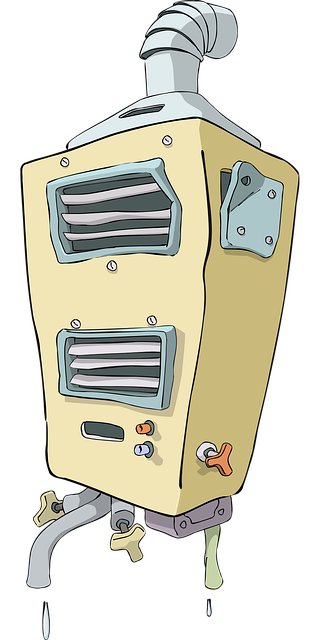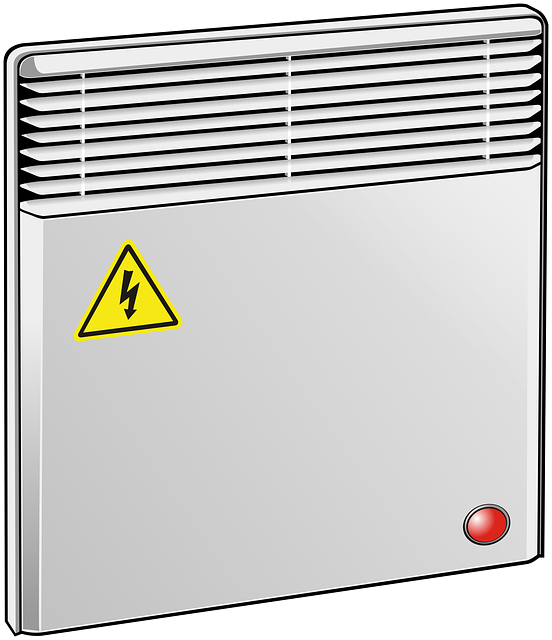water heater podcast maintenance is vital for homeowners to avoid costly repairs and ensure consistent hot water supply. Regular tasks include checking for corrosion, leaks, mineral deposits, and inspecting the temperature and pressure relief valve. Annual cleaning or more frequent in hard water areas removes buildup, while inspections verify the heater's overall health. Proactive care through these routine practices extends the heater's lifespan, improves efficiency, reduces energy costs, and prevents breakdowns.
Water heaters are often overlooked until they malfunction, leading to costly repairs. However, preventing such issues is easier than you think. In this article, we’ll guide you through essential water heater maintenance practices that can extend its lifespan and save you from unexpected bills. From understanding the basics of water heater care to implementing regular cleaning routines and adopting preventive measures, these steps will ensure your water heater operates efficiently and reliably.
- Understanding Water Heater Maintenance
- Regular Cleaning and Inspection Procedures
- Preventive Measures for Longevity
Understanding Water Heater Maintenance

Water heater maintenance is a crucial aspect of home ownership that often goes overlooked until a repair becomes necessary. Regular upkeep can significantly extend the life of your water heater and prevent costly surprises. It involves a series of simple yet essential tasks designed to keep this vital appliance running smoothly. By understanding these maintenance practices, homeowners can catch potential issues early on, ensuring optimal performance and longevity.
One key aspect is checking for any signs of corrosion or leaks around the base and connections of the water heater. Over time, mineral deposits can build up, leading to reduced efficiency and potential failures. Regular cleaning and inspection allow for the timely removal of these sediments, improving water flow and preventing damage. Additionally, inspecting the temperature and pressure relief valve is vital; ensuring it functions correctly prevents dangerous pressure buildup inside the tank.
Regular Cleaning and Inspection Procedures

Regular cleaning and inspection are vital components of water heater maintenance. Over time, mineral deposits, sediment, and dirt can accumulate inside the tank, leading to reduced efficiency and potential breakdowns. Therefore, it’s recommended to clean the heater at least once a year, or more frequently if it’s in a hard water area. This process involves removing the heater’s access panel and using specialized cleaning solutions to scrub away built-up residue. Additionally, inspecting the tank for signs of corrosion, leaks, or unusual noises is crucial. Early detection of these issues can prevent small problems from escalating into costly repairs.
During inspections, check the temperature and pressure relief valve (TPR) for any damage or leakage. Ensure that the heater’s insulation is secure and in good condition to maintain optimal energy efficiency. Regular cleaning and inspection not only prolongs the lifespan of your water heater but also ensures consistent hot water supply without unexpected interruptions or costly surprises.
Preventive Measures for Longevity

Regular water heater maintenance is a proactive approach that can significantly extend the lifespan of your appliance and prevent costly repairs. One of the most effective preventive measures is to drain and flush the heater at least once a year. Over time, minerals and sediment build up in the tank, reducing its efficiency and potentially causing damage. By periodically flushing out these deposits, you ensure optimal performance and longevity.
Additionally, checking and replacing the insulation around the water heater’s pipes can be a simple yet effective task. Insulation protects against heat loss, so maintaining it prevents the need for frequent reheating, thereby reducing energy costs and stress on the system. These routine practices are key components of water heater maintenance, ensuring your heater operates efficiently and reliably for years to come.
By implementing regular water heater maintenance practices, you can significantly reduce the risk of costly repairs. Understanding the importance of cleaning and inspecting your unit, along with taking preventive measures, ensures its longevity and optimal performance. These simple steps are key to keeping your water heater in top shape, saving you time and money in the long run.
